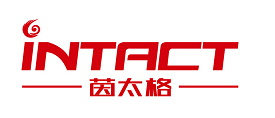Various adjuvants in dry cleaning solvents
In order to improve the quality of dry cleaning, various auxiliary agents should be added to the dry cleaning solvent. The main adjuvants are as follows:
1, SurfactanRhenium can play the role of solubilization and water washing in dry cleaning. There are many types of surfactants, and anionic surfactants and non-ionic surfactants are commonly used. Commonly used varieties are anionic surfactants such as dialkyl sulfosuccinate, alkyl sulfate, alkyl aryl sulfonate, fatty polyoxyethylene ether sulfate, oleyl alcohol polyoxyethylene ether phosphate, Non-ionic surfactants such as fatty alcohol polyoxyethylene ether, alkylaryl polyoxyethylene ether, and oxyethylene fatty amine. The concentration of the surfactant forming a capsule in water is about 0.1%, and the solubility of forming an inverse capsule in a solvent is at least 0.2-1.0%, that is, adding a surfactant equivalent to 0.2% -1.0% in the solvent to attach to the fabric , Which affects the cleanliness of the fabric.
2, bleach
In order to maintain the whiteness of the fabric and the brightness of the colored fabric, peracid can be used as a bleaching agent, and the active oxygen content of the dry acid-soluble peracid is 0.002% -0.4. Peracids that can be used include perboric acid, permaleic acid, phthalic acid, peracetic acid, and perpropionic acid. Alternatively, the peroxide and the active agent are mixed 1: 1 in a dry-cleaning aqueous solution, and a peracid is formed by the reaction. Such a peroxide can be selected from hydrogen peroxide, sodium perborate, sodium percarbonate, zinc peroxide, magnesium peroxide, calcium peroxide, etc., and the active agent can be selected from formic acid, acetic acid, propionic acid, benzoate, and benzenesulfonic acid. Acid oxides, etc.
3. Anti-redeposition agent
The anti-redeposition agent can make the dirt washed off by the solvent be re-deposited to the fabric to improve the whiteness and cleanliness of the fabric. Common anti-redeposition agents are: citrate, alkyl dimethylamine, cationic quaternary ammonium salt, and amphoteric betaine. These substances all have obvious anti-redeposition effects.
4.Stabilizer
When using halogenated alkane as the raw material, in the presence of water, the decomposition products will have a corrosive effect on the dry cleaning equipment. Therefore, some compounds containing oxygen or nitrogen should be selected as stabilizers to slow down the corrosion effect. Commonly used stabilizers are trioxane, alkylene methane, benzotriazole and the like. Certain alcohols, such as tert-amyl alcohol and isobutanol, can also be used as stabilizers, which not only have the effect of slowing corrosion, but also have anti-redeposition properties.
5. Softener and antistatic agent
The softener is added to reduce the friction between the fibers of the fabric, or between the fibers and the human body, and to improve the feel and touch of the fabric after washing. Therefore, in the dry cleaning agent, an antistatic softener should be added. For example, quaternary ammonium salts, imidazolines, and ethoxylated phosphorus add flexibility to antistatic properties. Such as quaternary ammonium salts, imidazolines, ethoxy phosphates and other surfactants. Antistatic agents that are used alone include triethoxide of amine, salt of diethanolamine, and the like.


